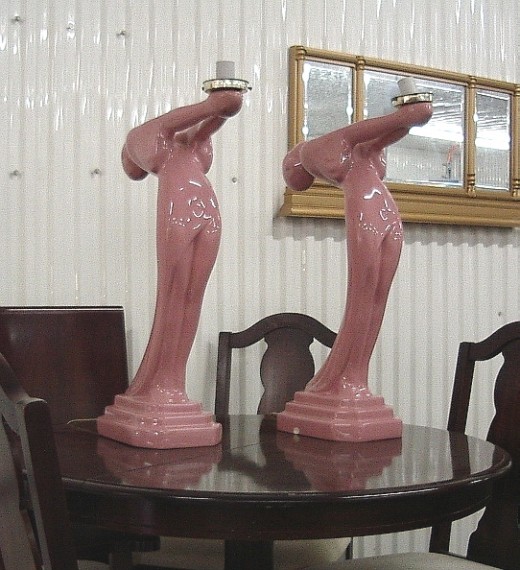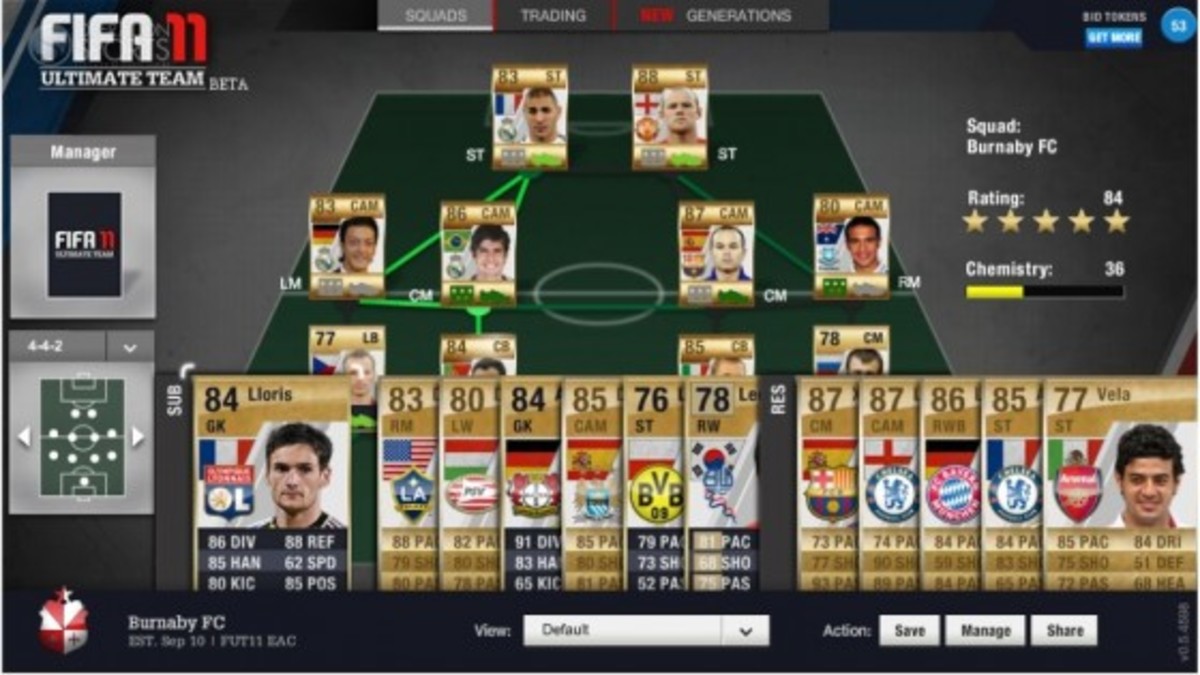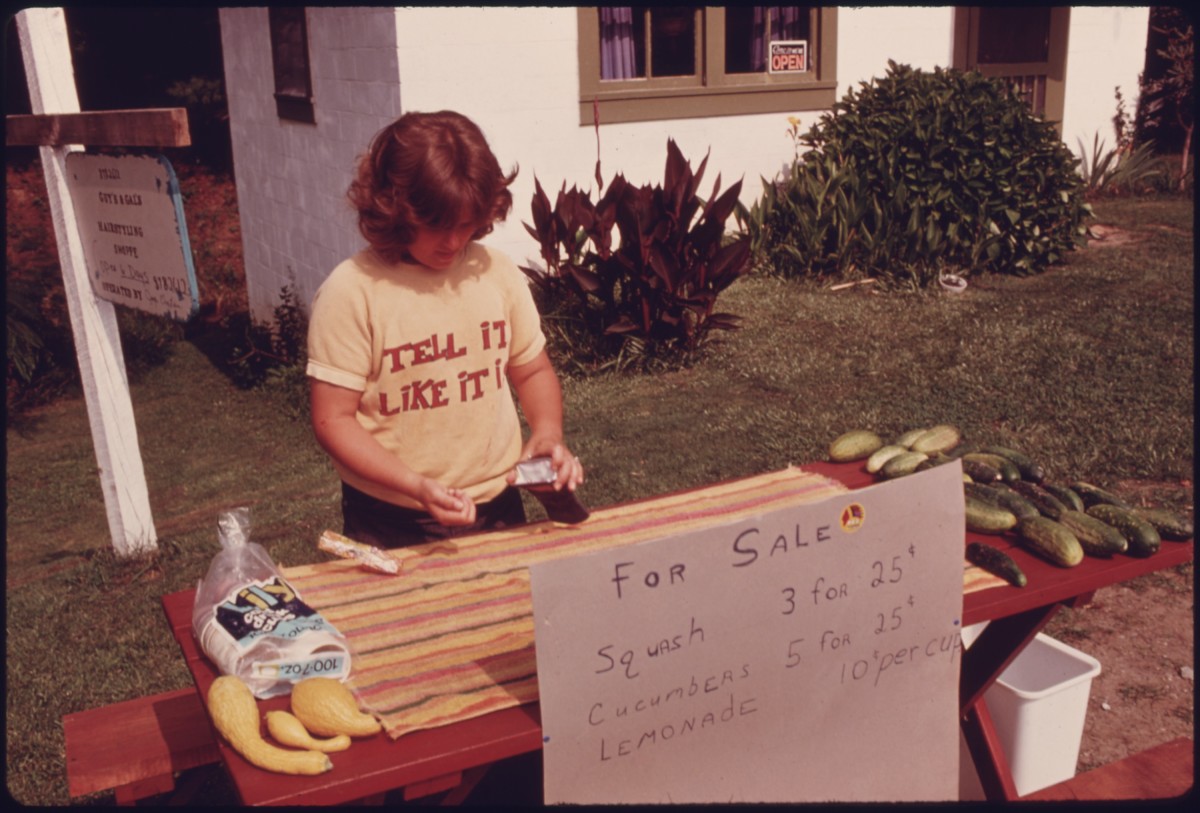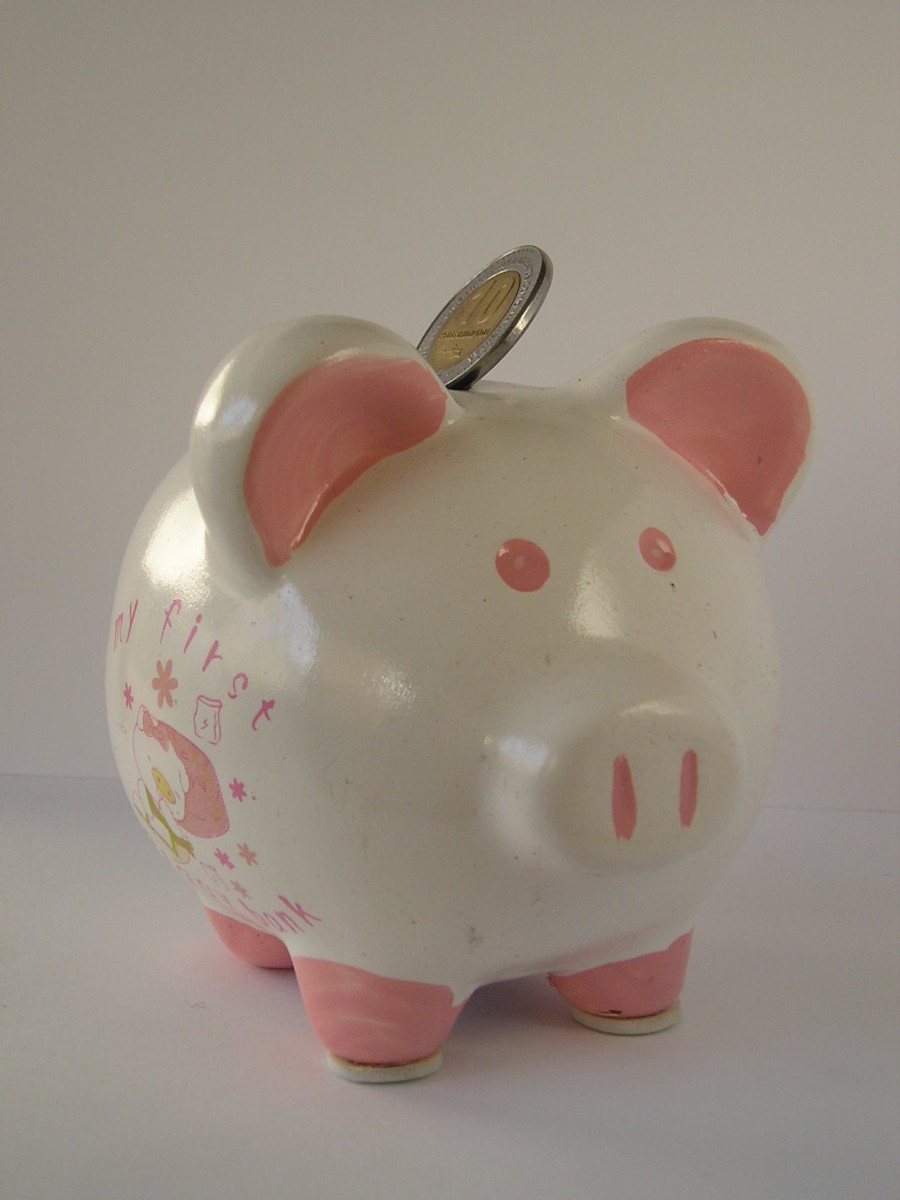Auctions: Bidding Your Way to Riches
What NOT to do at a Live Auction
do NOT bid at your first auction.
Do not even consider making a bid. Plan to attend your first auction with an auction savvy friend and make a pact with them. If they think you are about to be caught up in the excitement and make a bid, arrange for them to shackle your hands behind your back and slap some duct tape across your mouth to prevent you bidding against yourself.
Your introduction to the speed and rhythm of the auctioneer’s chant will have you reeling in disbelief, and unfortunately no two auctioneers have the same chant. The chant, a mixture of filler words and prices, is used to build up excitement and is non-stop. It is the non-stop part that will have you bidding against yourself.
Let’s say there is an ornament that you must have, the auctioneer is chanting away – ‘$40 is the latest bid, it is worth 10 times this, the last one I auctioned off went for $400, who here knows class when they see it?’ Then you bid $50. The auctioneer acknowledges your bid and continues his chant without a break. He scans the crowd, pointing his hammer as he does so, and what you hear is ‘do we have $60 , $60 for this make of vase is a steal,’ The chant is so fast that you think someone else has bid $60, and guess who bids $70?
THAT is the reason for the shackles and duct tape.
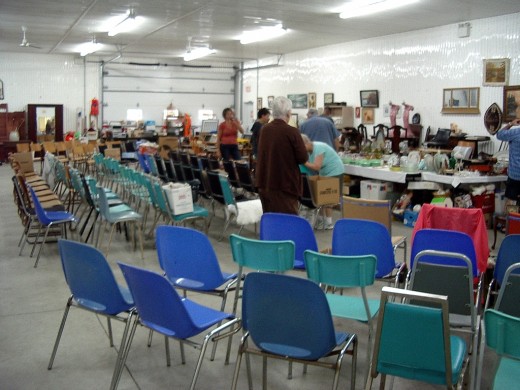
Bidders Must Have A Number
Potential bidders must have a number. They are allocated the number when they present an official means of identification when entering the hall. Without that number you can wave to your heart’s content, jump up and down, do somersaults, sneeze or exercise your tic, but you won’t be able to bid on anything, so pop a headache pill and relax as you assimilate the speed of the chant.
Bidders are normally allowed into the auction hall an hour before the auction proper begins, so that they can examine the items on auction. It is then that you take notes, and photographs if necessary, of items that interest you, or use your cellphone to check up on eBay prices. Some auctioneers will allow patrons to check items during the auction, but most discourage it; not only does it put other bidders off, but that is why you were allowed in early in the first place.
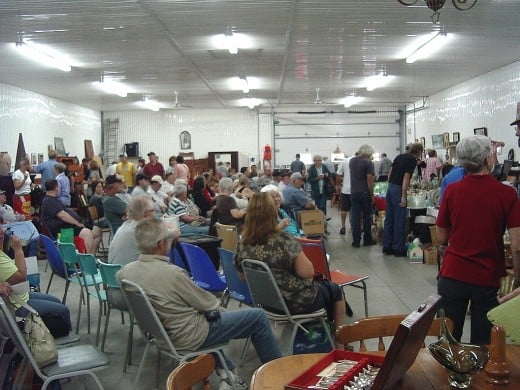
Handling the Auction Items
Never lift a cup or jug by the handle. The handle is the most likely part to be cracked or repaired. Leave your table manners at home and lift glass or china objects by the body and cradle your other hand beneath them.
Never push your hand into a half open box to find out what’s in it. Not only is this foolhardy as you can injure yourself, but it can also ruin what was in the box. I once saw a man pushing his hand into a large box to see if he could feel what was inside. When he couldn’t, he dragged the box out and opened it up. That was when he discovered that it was a photographic processing box and he had damaged the internal workings. He closed the lid quietly and walked innocently away.
Even when replacing objects, do so very carefully. It can be very embarrassing if you miscalculate the distance between a cup and its saucer or a glass and the tray that is holding it.
[If you do break something before the auction, you can’t be made to pay for it because it didn’t have a price. However if you made the winning bid on an object and then broke it – it’s yours. There are no return counters at auctions.]
Do not stretch forward to pick up a faraway object without first ensuring that your cuffs aren’t dangling or that your handbag won’t fall forward. When in doubt, approach the object from a different angle. However, do make sure that you return the item to the self same box that it came from.
Do not assume that anything with a lid (whether hinged or not) is safe to pick up and turn over to examine. Make sure you hold the lid in position.
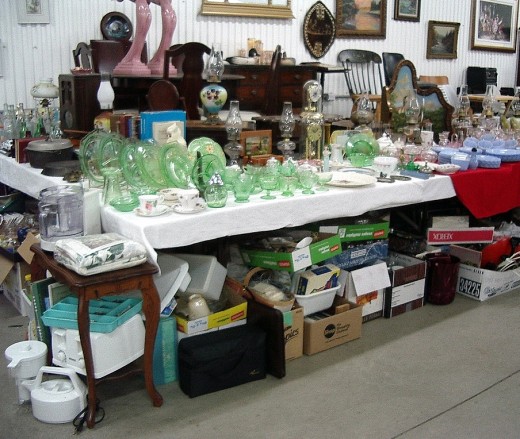
The Net, or Real Life Auctions
The main difference between online and real, live, auctions is the fact that online auctions are civilised. With an online auction, all you need is a keypad or touch screen to purchase an item; and you have the time to ponder your decision. At the live auction, that first hour of comfortable browsing prior to the start of the auction in a quiet and relaxed atmosphere will give you a false impression and have you wondering why you needed to bring a friend.
Indeed, if you are in an upmarket auction hall, it may well be like that all they way through the auction, but in a rural auction, be prepared to suppress your desire to run for cover when the auction begins.
If you intend returning at a later auction to bid, take the opportunity on your first visit to acclimate yourself with the system.
Check out the important things, such as washroom and canteen sites, and get to know who’s who. Finding out the payment methods is also a sensible idea. Some auctioneers deal in cash, but are wary of taking payment in $100 bills in case of forgery.
Most auctioneers accept cash, debit and credit cards, while others only take certified cheques with proof of identity. Do remember to add taxes to your purchase, and also find out if the auction house charges a buyers’ fee. Some auction houses charge the bidder a fee of 10% just for the privilege of doing business with them; 15% if you are bidding online.
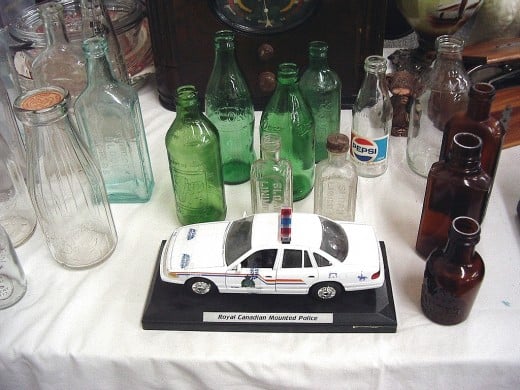
Dutch Auctions
You and your friend will probably leave before the end of the auction. Only a dedicated few stay until the end, but make a mental note to stay to the bitter end when you do become a bidder. You may think you've seen lots of bargains on auction, but near the end of the auction is where you will find the real bargains.
It is then that the Dutch auctions are held.
Never heard of a Dutch auction? Imagine you are the auctioneer, and as well as becoming hoarse, you are becoming tired. Your customers are all beginning to leave and if you don't auction off what's left, you will have to clear the hall by yourself. That's when you decide it is time for a Dutch auction.
The auctioneer gathers the remaining bidders around him in a semicircle, and begins to auction off the remaining boxes from the top down.
He starts counting down the way. $20…..$19…..$18…..$17 and so on.
Whoever stops him at a certain price has the opportunity of taking as many boxes as they wish at that price. He will keep going like that until every blessed thing has been auctioned off - then he can relax and have a beer, or two. A job well done.
And you?
You can take your newly acquired assets home and start Googling to find out how much closer you are to your million dollar goal.
Happy bidding!
